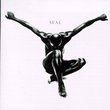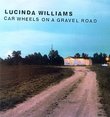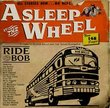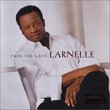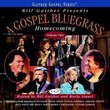| All Artists: Tracy Nelson Title: Tracy Nelson Country Members Wishing: 3 Total Copies: 0 Label: Reprise / Wea Release Date: 9/10/1996 Genres: Country, Blues, Pop, R&B, Rock Styles: Contemporary Blues, Soul, Country Rock Number of Discs: 1 SwapaCD Credits: 1 UPC: 093624623328 |
Search - Tracy Nelson :: Tracy Nelson Country
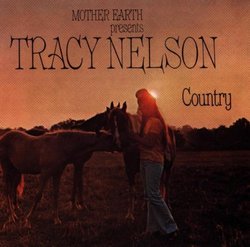 | Tracy Nelson Tracy Nelson Country Genres: Country, Blues, Pop, R&B, Rock
|
Larger Image |
CD DetailsSimilarly Requested CDs
|
CD ReviewsIn a Class By Itself - Tracy's Very Best Album James Morris | Jackson Heights, NY United States | 12/04/2005 (5 out of 5 stars) "In 1969, Tracy Nelson was the 24 year-old leader of a band called Mother Earth, a group of eclectic musicians of varying genres and temperaments. Unlike many San Francisco-based white urban bands of the 1960's, Mother Earth played "rock and roll" only in the loosest sense of the term. Their style, fused by Tracy's vision, embraced traditional Blues, Rhythm and Blues, Country Rock and New Orleans style soul. Not surprisingly, they drove their promoters crazy, and their record label, Mercury, never quite figured out how to market their sound. Nevertheless, their first album was a modest commercial and critical success, and pushed the band (initially at least) to the forefront of the burgeoning rock and roll market. Their first effort, Living With the Animals, presented a number of pure blues tunes (Mother Earth took their name from the title of a song by blues great Memphis Slim) which somehow led the label to believe (and hope) that they had another Janis Joplin on their hands. After all, for their premiere album, Tracy had uncorked her self-penned torch number, Down So Low, a paean to lost love and heartache that was not too far stylistically from the vocal beseeching of Joplin's best-known songs. But the band traveled to Nashville in 1969 for their second album, Make a Joyful Noise and, much to the consternation of the label's management, they recruited a number of country giants, including famed fiddle player Johnny Gimble and Nashville session wiz Pete Drake to back their second album. They also hired the Jordanairres, the famous vocal backup group to Elvis Presley and Patsy Cline, which made the label wonder if the group's producer, Travis Rivers, had lost his mind. Despite the presence of some of country's most skilled musicians, Make a Joyful Noise again emphasized a sound that was more Rhythm and Blues than Country, (or Rock and Roll, for that matter) and the second Mother Earth album went on to achieve an even higher level of critical recognition and commercial success than their first album. After finishing their second album in record time, the band continued to linger in the Nashville area, and Tracy established a friendship with several of the Nashville session men who'd played on Make a Joyful Noise. Because the second album had proceeded so smoothly, they found themselves stuck with extra studio time, and several top-notch musicians who were between other assignments. When somebody suggested that they record an album of country standards, spotlighting the amazing vocal talents of Tracy Nelson, she was reluctant to go for it. Tracy considered herself the lead singer of a Rhythm and Blues band, and had no desire to suddenly undertake a "country" identity. Her objections proved prophetic, for although she never again made an album of pure country, the label of country singer has followed her name ever since. To emphasize the fact that this was all Tracy (the first two Mother Earth albums had each included lead vocals by other band members) the proposed album was to be titled "Mother Earth Presents Tracy Nelson Country". All in all, quite a change for her and the band. The addition of two of Elvis Presley's top sidemen, guitarist Scotty Moore and drummer D. J. Fontana, convinced Tracy to relent, and she and her band took to the recording studio with some of the finest country session men then working in Nashville. When the album was finished, Mercury released it to a fairly cool commercial reception, and Tracy and Mother Earth made another four albums before the band broke up. Tracy continued to make records under her own name, usually employing several ex members of Mother Earth, and at this writing, she has released a total of 23 albums, including those released with Mother Earth. Long in demand for session work, she has also appeared as guest background, duet or lead vocalist on at least two dozen more albums by various other artists. But, back to "Country". Although "Mother Earth Presents Tracy Nelson Country" failed to make much of a splash when first released, the album has been a favorite of Tracy's fans throughout her forty year career. I first heard "Country" in 1977, when I became acquainted with her music, and it immediately rose to the position of my favorite album made under her name. I am apparently not alone; long available only through rare record dealers at very high collector's prices, many fans have elevated this album through word-of-mouth to the status of "legendary". I finally got my own copy in 1985 from a rare record dealer in Manhattan's Greenwich Village, who assured me that the used copy I purchased was a bargain at $35. I would have gladly paid more; for years I had only a taped copy that a friend had made, and I often noticed that Mother Earth's first two albums, long out-of-print, were selling for upwards of $125 each at NY's most famous rare record dealer, Colony Records on Broadway and 49th street. So what makes Mother Earth Presents Tracy Nelson so special? One listen will answer that question, but let me point out just a few of my favorite highlights. The album opens with an original song, Sad Situation, as finely crafted a torch ballad as has been ever been offered by anyone. "Yes, I've known others like you with a heart made of stone" Tracy wails, "and by now I guess I should be used to living alone..." Her heartache is punctuated by the smooth vocals of the Jordanaires, and for just a moment you think you're listening to Patsy Cline, come back to life again. "It's a sad situation, not just because I'm so blue. It's a sad situation..." there is a pause, and you could swear you hear a sob, "...'cause I'm still loving you". Almost like a female Ray Charles, Tracy's voice is more soulful than we're used to hearing on a country song, and, I dare say, more powerful than many other vocalists renowned for their power. It's just the first track, and she has managed a highly impressive start. Following the opening track are ten more classic country songs, covering material associated with Dolly Parton, Patsy Cline, Elvis Presley, Boz Scaggs, Hank Williams and others. Like any great singer, Tracy neither invites comparison to the originals nor makes you long to hear them. Hers are truly fresh approaches to each song that somehow manage to enhance your fondness of the originals, rather than invoke their memory. Her version of Stand By Your Man, easily my favorite track, is a showcase for her powerful voice, and you realize as you listen that, Tammy Wynette's original version aside, Tracy makes you wonder why this song was never recorded by Judy Garland, Ella Fitzgerald or any of a handful of other divas noted for their vocal power. Tracy ranks with the best of them, and this album proves it. She does well on the ballads, but Tracy is equally at home with the fast stuff, and her renditions of Blue Blue Day and Why, Why, Why will have you snapping your fingers and tapping your toes. Her achingly beautiful, hauntingly slow rendition of Hank Williams's poetic masterpiece I'm So Lonesome I Could Cry was a satisfying finale to the 11 tracks that made up the original vinyl. But the CD contains three bonus tracks; the first is a previously unreleased alternate take of I Wanna Be Your Mama Again, from the second Mother Earth LP, Make a Joyful Noise. While I'm always glad to hear fresh Tracy, it can't quite compare with the released master take, which happens to be my favorite track from the original Make a Joyful Noise. When "Country" was first re-released to CD in 1996, Mercury had no plans to release Mother Earth's premiere albums, Living With the Animals or Make a Joyful Noise, and so they included three tracks from Make a Joyful Noise to supplement the "Best of Tracy Nelson and Mother Earth" CD that was released concurrently. Happily, both Living With the Animals and Make a Joyful Noise were finally reissued on CD by Wounded Bird Records in 2004, followed by the remaining classic Mother Earth albums. At this writing, all but two of Tracy Nelson's 23 albums are available on CD. After you get Mother Earth Presents Tracy Nelson Country and it leaves you hungry for more Tracy (as I can almost guarantee it will) you might want to check out some of her other albums next. After "Country", my personal favorites are Homemade Songs, originally released in 1978, and Move On, her third effort for Rounder Records, recorded in 1993. Other fans have their own preferences, but the woman never made a bad album in her life, and I never hesitate for a moment to recommend that music lovers of discerning tastes acquire any one of her fine albums." Brilliant traditional country album Peter Durward Harris | Leicester England | 09/14/2002 (5 out of 5 stars) "Tracy Nelson is not a name that is normally associated with country music, but she could have been a great country singer, judged on this album.The album opens with an excellent original song (Sad siuation). The remaining songs are all covers, except Stay as sweet as you are, a lovely song which Tracy co-wrote with Bob Arthur.Some of the covers are of well-known songs, including Stand by your man (Tammy Wynette), I fall to pieces (Patsy Cline) and two Hank Williams songs, I'm so lonesome I could cry and You win again. Tracy also does a brilliant version of Don Gibson's Blue blue day. That's alright mama, the Arthur Crudup song made famous by Elvis, gets the country treatment and fits in well here.Tracy also does an outstanding cover of Why why why, a song written by Dolly Parton and recorded by her on the Monument label. In 1969, when this album was recorded, Dolly was only just beginning to establish herself as Porter Wagoner's duet singer, so Tracy's choice of this song was astute.This album is not typical of Tracy's other music, nor is it typical of country music of the time, as there are no strings here - this is very solid, traditional country." Don't miss this one, C&W fans! Music of the highest calibur! tomfrompennsylvania | Greater Philadelphia | 02/13/2000 (5 out of 5 stars) "Although C&W is not my first love, but I can't imagine anyone with a home full of nothing but country records and a true country music fan at heart not having their socks knocked off by this. Tastefully arranged, the inspired voice of Tracy Nelson gives the listener to this collection of many well-known tunes an unforeseen experience of country music at the highest standard, at its most beautiful; with touching and vibrant delivery, reaching its possibilities of what this music can do for you. A very listenable recording, a transcendent country recording. There are many good records to spend your money on. This is one of the best of those, get it, and enjoy the surprise and joy of this recording."
|

 Track Listings (14) - Disc #1
Track Listings (14) - Disc #1
